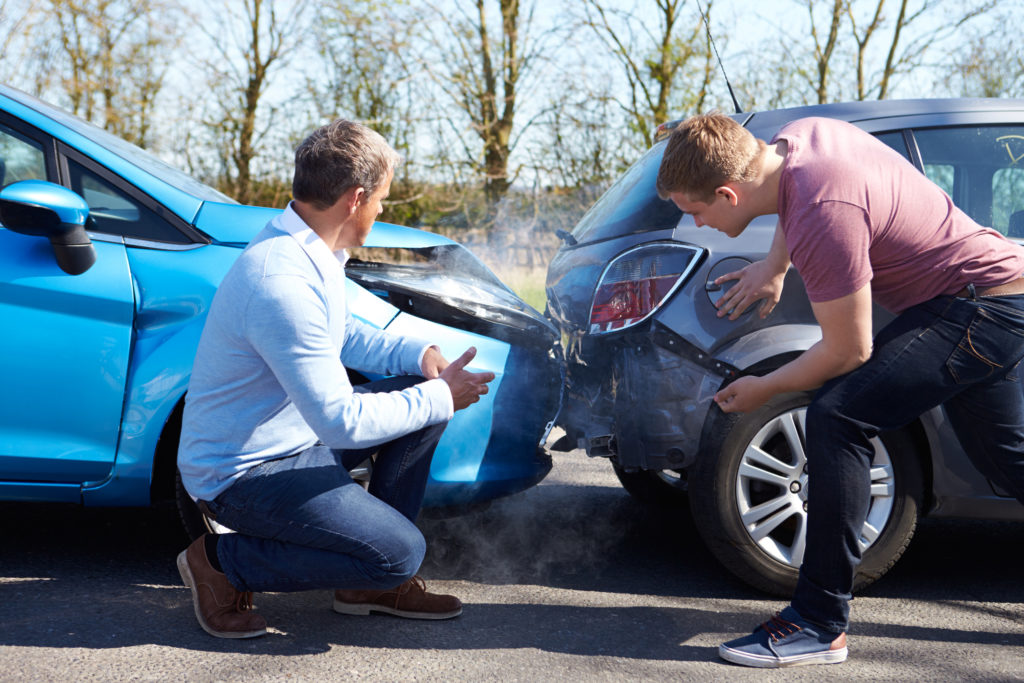
Auto collisions, like most things in life, are often not black-and-white incidents in which one person is totally at fault. Determining the degree to which each driver is liable is a complicated process. But in most states, you are entitled to partial compensation if you’re partially at fault. Arizona is one of those states.
In this article, we’ll go over how fault is determined, the liability laws in different states, and what you need to do after an accident to make a stronger case.
Negligence determination by states
Each state has laws that govern compensation in a vehicular collision based on degree of fault. Arizona follows the rules of pure comparative negligence, which determine compensation by the percentage of the accident that is your fault. If you are partially at fault, you can still receive compensation. If 20 percent of the accident is your fault, you can receive 80 percent compensation for medical expenses and other damages. (However, a plaintiff cannot receive compensation if he or she intentionally caused or contributed to the injury.)
By contrast, states that follow the doctrine of pure contributory negligence rule that if the accident is in any way your fault, you cannot collect compensation. Even if the accident is only 10 percent your fault, you won’t receive compensation.
Modified comparative negligence means that your ability to collect compensation is limited. For example, in some states if you are less than 50 percent liable, you can collect compensation for the accident.
Determining fault in an accident
After an accident, evidence will be gathered including photographs of the scene, witness statements, and each driver’s account of the accident. The police will also take a report of the incident.
In some states, you must file an accident report if there is bodily injury or a certain amount of property damage. You must file these with the departments suggested by the specific state. Some states require people to file this report with the police department, other states with the DMV. Try to obtain a copy of the report or ask the officer for the report number.
Medical reports will also be taken into consideration. The doctor will determine how serious the injuries are and file a medical report. He or she will also suggest further testing or future appointments for extended medical care.
What to do after an accident
Before the degree of fault is determined, you’ll need to do several important things that will help ensure your case works in your best interest:
• Call the police and give them your account of what happened. Be completely honest and state only the facts. Try to remain calm, and cooperate with law enforcement.
• When speaking to the people involved in the accident, make sure you state only the facts. Don’t admit fault or even apologize, because this could make you seem guilty for something that may not be your fault.
• If possible, get as many witness statements as you can. Take numerous photos of the accident, the scene, the road conditions, and your injuries. More photos will help you and your lawyer build a stronger case. Click here for a list of evidence you should gather at the scene.
• Always seek medical attention as soon as possible, even if you don’t feel you need it. Very often, pain can be overshadowed by shock and adrenaline in the hours immediately following an accident. If you wait until injuries and pain surface later on, these injuries probably won’t be accounted for in your claim.
• Consult with an experienced personal injury attorney before discussing the case with the other driver’s insurance company. Insurance companies typically try to settle for less than you deserve. The Lamber-Goodnow Injury Law Team offers complimentary consultations. We only get paid if you get paid. An attorney can advise you on what to say and how to handle the insurance company in a way that preserves your best interest. Your attorney will also know the laws for your state and will get you the most compensation possible.
Insurance you should purchase before you get into an accident
Make sure to carry collision coverage. This will help pay for repairs to your damaged vehicle or replacement of a totaled vehicle, even if the accident is your fault. You should also carry medical payments coverage. This covers medical costs if you are hurt in a collision, regardless of which driver is at fault. This insurance may also help cover medical treatment for your passengers’ injuries, or treatment of your own injuries if you are a pedestrian or cyclist struck by a vehicle. If you are in a no-fault state, you won’t need this type of insurance because the medical costs are already covered. Arizona does not have a no-fault insurance law.
#KC
